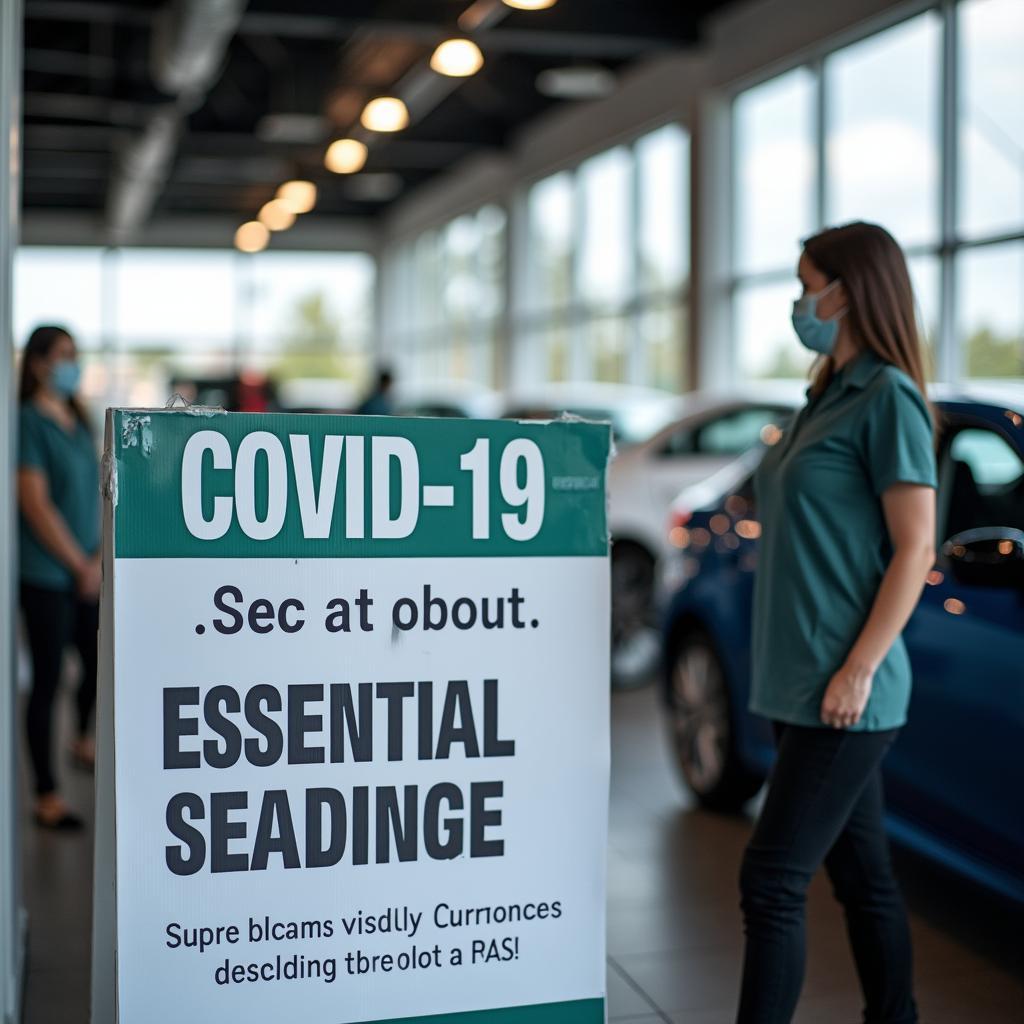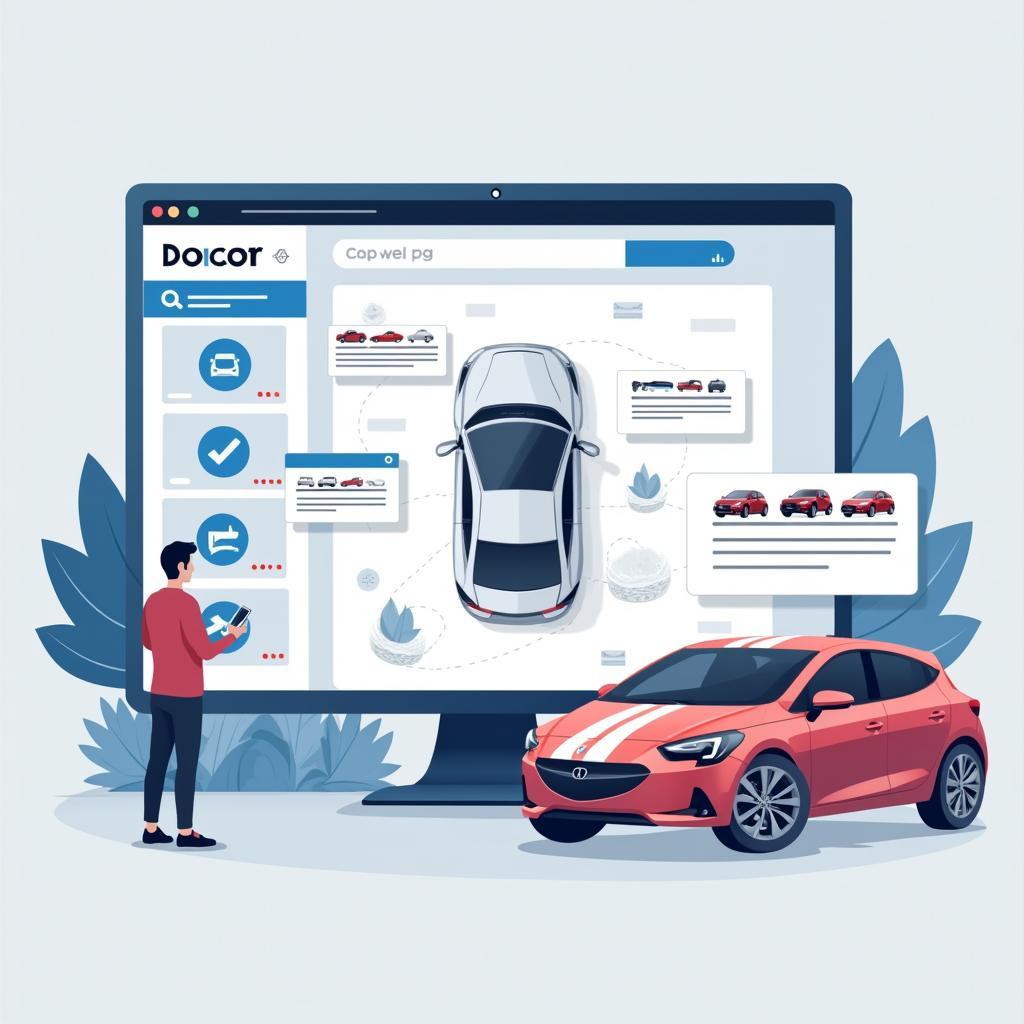The COVID-19 pandemic has brought unprecedented disruptions to various industries, and the automotive sector is no exception. As governments worldwide grappled with containing the virus’s spread, many implemented lockdown measures that significantly impacted businesses, including auto dealerships. However, recent updates to federal guidance in several countries have brought a sigh of relief to many in the auto industry, as auto sales are now being recognized as an “essential service” in certain circumstances.
 Car dealerships open during the pandemic with essential services signage
Car dealerships open during the pandemic with essential services signage
This recognition acknowledges the crucial role that personal vehicles play in maintaining essential services and the overall functioning of society, even during a pandemic. But what exactly does this classification mean for consumers and the auto industry?
Understanding “Essential Service” in the Context of Auto Sales
The classification of “essential service” typically implies that a particular business or industry is permitted to operate even during government-mandated lockdowns or restrictions imposed to curb the spread of a pandemic. In the case of auto sales, this designation recognizes that:
- Access to Personal Vehicles is Crucial for Essential Workers: Healthcare professionals, law enforcement officers, grocery store employees, and countless other essential workers rely on their vehicles to perform their duties.
- Automobiles Facilitate Essential Travel: Even during lockdowns, people need to travel for essential reasons, such as grocery shopping, medical appointments, or caring for family members.
- The Auto Industry Plays a Vital Role in the Economy: The automotive sector is a significant economic driver, supporting millions of jobs in manufacturing, sales, repair, and related industries.
 A website interface for buying a car online.
A website interface for buying a car online.
However, it’s crucial to note that the “essential service” designation for auto sales often comes with caveats. Many governments allow dealerships to operate with limitations, such as:
- Online Sales and Remote Services: Encouraging customers to browse inventory, apply for financing, and even complete purchases online.
- Curbside Pickup and Delivery: Minimizing in-person contact by offering contactless delivery options for vehicle purchases and service appointments.
- Strict Safety Protocols: Implementing rigorous hygiene measures, social distancing guidelines, and mandatory mask-wearing for both employees and customers.
The Impact on Consumers and the Auto Industry
The classification of auto sales as an essential service has had a multi-faceted impact:
For Consumers:
- Continued Access to Vehicles: Consumers, particularly essential workers, can purchase or service their vehicles, ensuring mobility during uncertain times.
- Rise of Digital Retailing: The pandemic has accelerated the adoption of digital retailing in the auto industry, offering customers more convenient and contactless ways to buy or lease a vehicle.
For the Auto Industry:
- Business Continuity: While facing challenges, the “essential service” designation allowed many dealerships to remain operational in some capacity, mitigating job losses and economic hardship.
- Accelerated Digital Transformation: The pandemic has pushed the auto industry to embrace digital solutions and adapt to changing consumer behavior, potentially reshaping the car buying experience in the long run.
Navigating the New Normal in Auto Sales
The classification of auto sales as an essential service during the pandemic reflects the critical role of personal mobility in modern society. While the long-term implications of this shift are still unfolding, it’s clear that both consumers and the auto industry have had to adapt to a “new normal.”
As the world navigates the evolving pandemic landscape, it’s crucial to stay informed about local regulations, safety protocols, and available services. Consumers should contact dealerships directly or visit their websites to understand their specific operating procedures and options for online sales, remote services, or contactless delivery.


